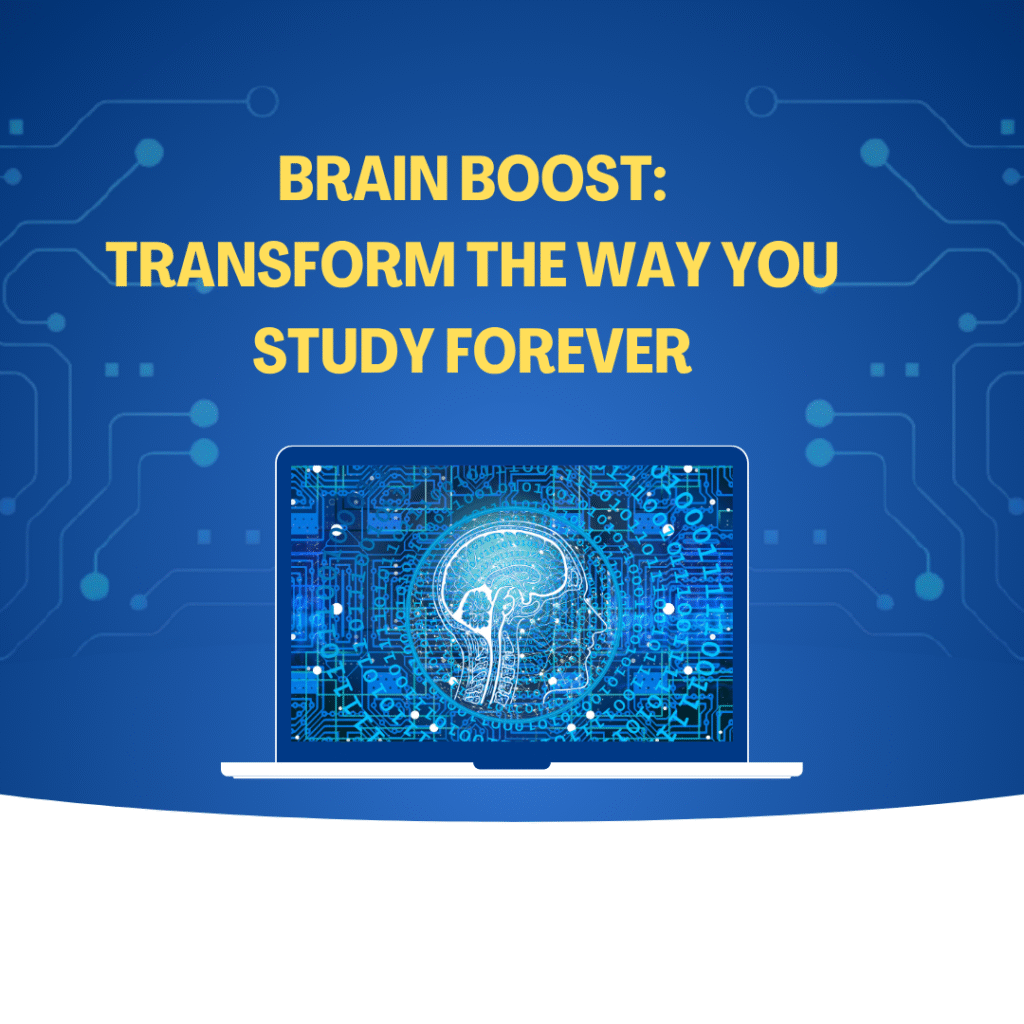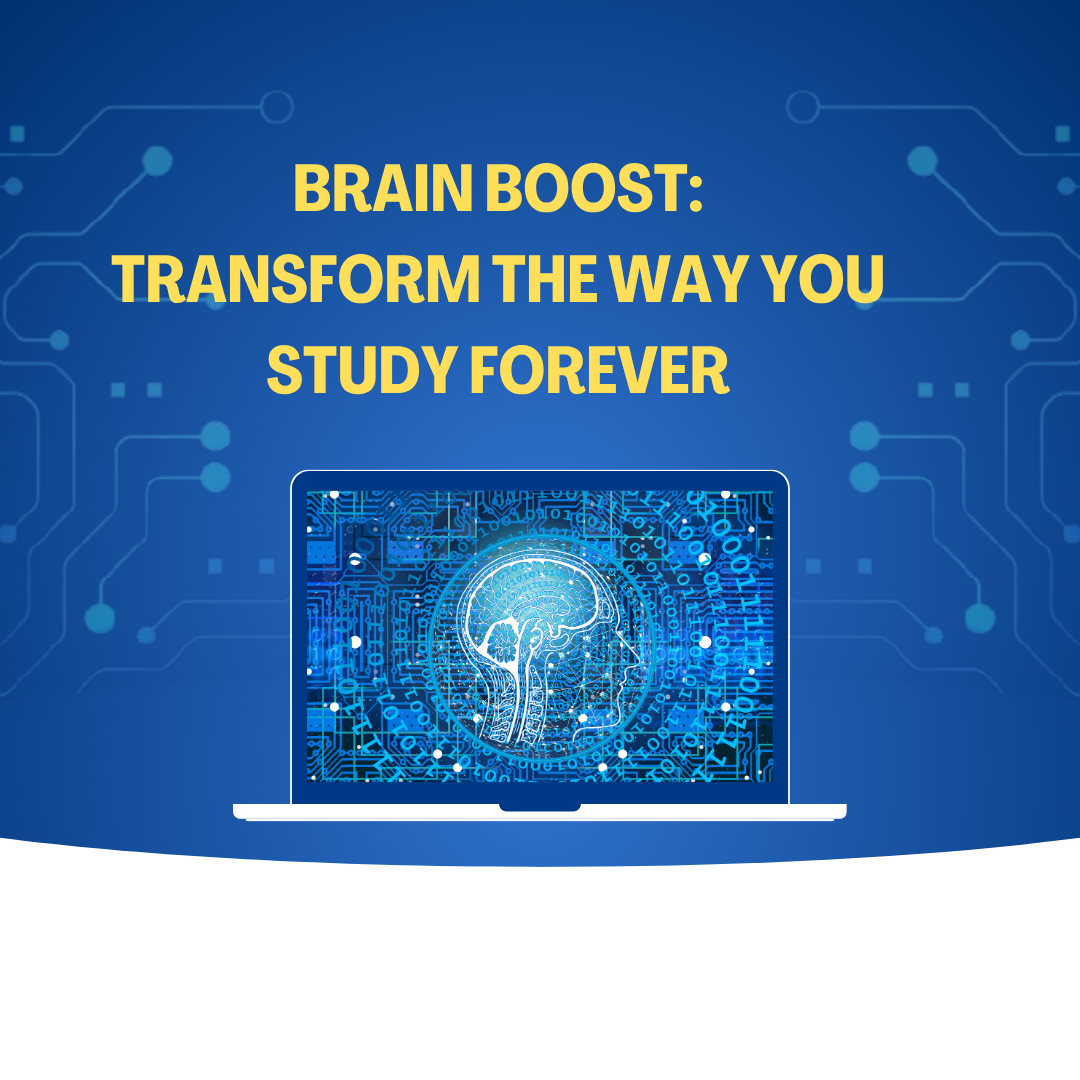Brain Boost: Transform the Way You Study Forever
Introduction: The Power of a Brain Boost
Have you ever wondered why some people seem to absorb knowledge effortlessly while others struggle despite studying for hours? The secret doesn’t lie in how much time they spend studying but how effectively they use their Brain Boost: Transform the brain is an incredibly powerful tool — capable of learning faster, retaining more, and performing better when it’s trained correctly. Yet, most of us never learn how to use it to its full potential. In this article, we’ll explore powerful, science-backed techniques that will help you transform the way you study forever. From nutrition and sleep to mindset and focus, you’ll discover everything you need to give your brain a lasting boost and make studying more efficient, enjoyable, and rewarding.
1. Understanding the Science of Learning
The human brain is like a supercomputer that processes, stores, and retrieves information. However, unlike machines, your brain grows stronger the more you use it — thanks to a concept called neuroplasticity. Neuroplasticity refers to your brain’s ability to reorganize itself by forming new neural connections throughout life. Each time you learn something new, you’re strengthening those pathways and building better communication between neurons. This means that your ability to learn is not fixed; it can improve with practice, the right mindset, and consistent effort.
However, not all learning methods stimulate these brain pathways equally. For example, passive studying — such as rereading notes or cramming before exams — doesn’t encourage deep processing. On the other hand, active learning, where you engage with the material by explaining it to someone else or testing yourself, activates multiple parts of your brain and enhances long-term memory. By understanding how your brain works, you can design study habits that align with how learning actually happens on a biological level.
2. Why Traditional Studying Fails
For decades, students have been told that studying hard is the key to success. While effort is important, the real key is studying smart. Traditional methods like cramming, copying notes, or rereading textbooks are inefficient because they rely on short-term memory. When you overload your brain with too much information in a short time, it becomes harder to retain anything meaningful. That’s why most people forget what they studied within days of an exam.
Another reason traditional studying fails is due to lack of engagement. The brain loves novelty and challenge. When you use repetitive, boring study methods, your brain zones out and stops paying attention. Also, in our modern world full of distractions — from phones to social media — it’s harder than ever to maintain focus. The solution is to combine scientifically proven learning strategies with lifestyle changes that optimize brain performance.
3. The Brain Boost Transform the Method: Study Smarter, Not Harder
The Brain Boost Method is based on the principle of efficiency — getting the most out of your study time with less effort. It combines neuroscience, psychology, and productivity techniques to help you learn better. Here are the key components of this transformative method:
A. Active Learning
Active learning involves engaging directly with your material. Instead of reading passively, challenge your brain with questions, summarize concepts in your own words, or teach the topic to someone else. This process strengthens neural connections and makes information easier to recall.
B. Spaced Repetition
This method takes advantage of your brain’s natural forgetting curve. By reviewing material at spaced intervals — for example, after one day, three days, and one week — you move information from short-term to long-term memory. Apps like Anki or Quizlet make this process simple and effective.
C. The Pomodoro Technique
One of the best ways to maintain focus is the Pomodoro Technique, where you study for 25 minutes followed by a 5-minute break. After four sessions, take a longer 20-minute break. This method keeps your energy high and prevents burnout while maximizing concentration.
4. Nutrition for a Smarter Brain
Your brain needs the right fuel to perform at its best. Just as an athlete eats a balanced diet for peak physical performance, students need brain-friendly foods to stay sharp and focused.
Foods That Boost Brain Function
Omega-3 fatty acids, found in fish, walnuts, and flaxseed, support brain health and improve memory. Antioxidant-rich foods like blueberries, spinach, and green tea protect your brain from stress and aging. Whole grains provide a steady energy supply, keeping you alert throughout study sessions. Don’t forget to hydrate — dehydration can lower cognitive performance and focus.
Foods to Avoid
Processed foods, refined sugar, and excessive caffeine may provide temporary energy but lead to crashes and irritability later. Instead, opt for natural snacks like fruits, nuts, and yogurt for sustained brain power.
5. The Importance of Quality Sleep
Sleep is when your brain processes and consolidates everything you’ve learned. Pulling all-nighters might help you cover more material temporarily, but it harms your ability to recall information later. During deep sleep, your brain moves memories from short-term to long-term storage and strengthens neural connections. Lack of sleep, on the other hand, reduces attention, creativity, and problem-solving ability and .
To enhance learning, make sleep a priority. Maintain a regular sleep schedule, avoid screens an hour before bed, and create a relaxing nighttime routine. Aim for 7–8 hours of uninterrupted rest. Quality sleep doesn’t just help you remember better — it also improves mood, motivation, and mental clarity.
6. Exercise: The Ultimate Brain Energizer
Physical activity doesn’t only benefit your body — it’s one of the best ways to boost brain performance. Exercise increases blood flow, delivering oxygen and nutrients to your brain. It also triggers the release of endorphins, which improve mood and reduce stress. Even short bursts of activity, like a 15-minute walk or a quick stretching session, can dramatically enhance focus and creativity.
Studies have shown that regular exercise improves memory and cognitive flexibility — the ability to switch between tasks or ideas. Incorporating simple habits like morning stretches, yoga, or a brisk walk can keep your brain energized and ready for deep learning.
7. Building Unbreakable Focus
In the digital era, maintaining focus is harder than ever. Between constant notifications, social media, and multitasking, it’s easy to lose track of time and productivity. To truly study effectively, you need to train your mind to enter deep focus — a state of total immersion in the task at hand.
Start by eliminating distractions. Keep your phone out of reach or use apps that block social media during study hours. Create a daily to-do list with specific, measurable goals. Instead of saying “I’ll study biology,” write “I’ll review photosynthesis and complete practice questions.” This clarity keeps your brain engaged and purposeful.
Another tip is to study in a distraction-free environment. A quiet, organized space signals your brain that it’s time to focus. If you struggle with motivation, use background music or ambient sounds like rain or white noise to create a calm atmosphere. Over time, you’ll notice that your ability to concentrate strengthens like a muscle.

8. The Growth Mindset: Rewiring Your Beliefs
Your mindset shapes your learning potential. If you believe intelligence is fixed, you’ll give up when faced with difficulty. But if you adopt a growth mindset — the belief that intelligence can be developed — you’ll see challenges as opportunities to grow. This mental shift can transform your academic performance.
Instead of thinking “I’m bad at math,” tell yourself, “I’m learning how to get better at math.” Celebrate progress rather than perfection. The more effort you put into understanding something, the stronger your brain becomes. By nurturing a positive attitude, you’ll reduce anxiety, improve confidence, and find joy in the learning process.
9. Mastering Memory Techniques
Your memory is like a filing cabinet — it works best when organized. Fortunately, there are proven techniques to help you remember more effectively. Visualization is one of the most powerful tools. The brain remembers images better than text, so turn information into mental pictures. If you’re studying history, imagine scenes vividly. If it’s science, visualize processes in motion.
Another method is chunking — breaking large pieces of information into smaller, more manageable sections. For example, remembering a 12-digit number is easier when grouped into sets of three or four. Mnemonics, or memory aids, also make learning fun and efficient. Acronyms, rhymes, or funny associations can help you recall information instantly during exams.
10. Creating the Ideal Study Environment
Where you study matters as much as how you study. A clean, organized, and well-lit study area improves concentration and reduces mental clutter. Make sure your desk is free of distractions, and keep all your materials — books, notes, stationery — within reach. Natural light helps maintain energy, while comfortable seating supports long study sessions.
Establishing a routine also helps train your brain. Study at the same time each day to build consistency. You can even personalize your space with motivational quotes or calming elements like plants. When your environment is inviting, studying becomes something you look forward to rather than dread.
11. Smart Technology for Smarter Studying
Technology, when used wisely, can be an incredible asset. Apps like Notion and Evernote help organize your notes and tasks efficiently. Quizlet allows you to create flashcards for active recall, while Grammarly improves your writing skills. For research projects, platforms like Google Scholar and ResearchGate offer access to credible academic sources.
To stay focused, use productivity tools like Forest or Rescue Time, which limit distractions and track study hours. The goal is not to eliminate technology but to use it strategically to enhance your learning experience rather than hinder it.
12. The Power of Music in Learning
Music can profoundly influence your mood, energy, and focus. Studies show that listening to instrumental music can improve concentration and creativity. Classical music, lo-fi beats, or ambient sounds are ideal for studying because they stimulate your brain without being distracting. Avoid songs with lyrics when studying complex material since they can interfere with reading comprehension and memory.
Experiment with different types of background music to see what works best for you. Some people focus better in total silence, while others thrive with soft tunes in the background. The goal is to create an environment that helps you feel calm, focused, and productive.
13. Staying Motivated and Consistent
Motivation is the driving force behind successful studying. However, it often fades with time if you rely solely on willpower. To stay consistent, create habits that support your goals. Set small, achievable milestones and reward yourself for completing them. Keeping a progress tracker or journal helps visualize your growth and keeps you accountable.
Find your “why” — the deeper reason you want to succeed. Whether it’s achieving a dream career, supporting your family, or personal growth, your purpose fuels your determination. Remember, consistency beats intensity. Even small efforts done daily compound into significant results over time.
14. Managing Stress for Peak Performance
Stress is one of the biggest obstacles to learning. When you’re anxious, your brain releases cortisol, a hormone that interferes with memory and focus. To combat stress, practice mindfulness and deep breathing. Just five minutes of meditation can calm your nervous system and clear your mind. Regular breaks, laughter, and social interaction also reduce mental fatigue.
Don’t neglect your emotional health. Avoid comparing yourself to others and acknowledge your progress. A calm mind is a focused mind, and emotional balance is the foundation of peak cognitive performance.
15. Review, Reflect, and Evolve
True learning doesn’t end after an exam. Reviewing and reflecting on what you’ve learned helps solidify your knowledge and improve your methods. Schedule regular review sessions — weekly or monthly — to revisit past topics. Keep a study journal to track what techniques worked best for you and what needs adjustment.
Reflection promotes continuous improvement. Over time, you’ll develop a personalized learning system that fits your strengths, preferences, and goals perfectly. The more you evolve your methods, the easier studying becomes.
Conclusion: Transform Your Mind, Transform Your Life
Your Brain Boost: Transform the holds unlimited potential waiting to be unlocked. With the right habits, nutrition, mindset, and study strategies, you can tap into extraordinary mental power and transform the way you study forever. The Brain Boost Transform the Method isn’t about working harder; it’s about working smarter — optimizing your learning to align with how your brain naturally functions.
When you nurture your brain with proper rest, exercise, and nourishment, pair it with focus and motivation, and cultivate a growth mindset, you’ll not only excel academically but also develop skills that serve you for life. Studying will no longer feel like a burden — it will become an exciting journey of self-improvement and discovery.
Your future success starts in your mind. Train it, fuel it, and believe in its potential. Once you do, you won’t just boost your brain — you’ll transform your entire life by Brain Boost Transform the Way of Study. .
Would you like me to make this version SEO-optimized with keywords (like brain boost, study smarter, improve memory, focus techniques, student motivation) and include a meta title and meta description for blog publishing on WordPress or Blogger?


